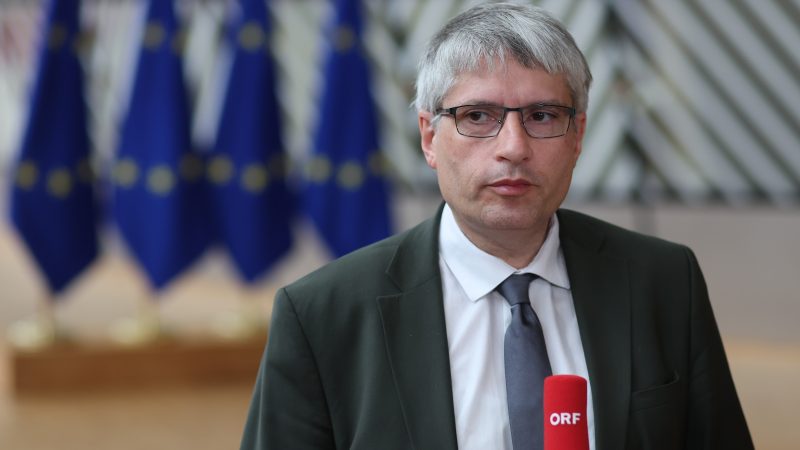Laying out key priorities for the EU’s upcoming Clean Industrial Deal, German Economy State Secretary Sven Giegold said on Monday (30 September) he wants the Commission to prioritise renewable energy, taking a tough line on nuclear power and France’s renewable targets.
Alongside a quicker roll-out of renewable energy facilitated by “further exemptions from [environmental impact] assessments,” Giegold outlined several other German priorities for the EU’s upcoming strategy.
Based on the 2030 renewable energy targets, the EU should also set up a 2040 framework, complemented by new, more ambitious targets for energy efficiency, he said.
“It should include new heating standards, a heat pump action plan and a renovation initiative,” he explained, noting a heat pump action plan was last shelved in 2023.
Hydrogen, made from renewables, should be governed by a “a pragmatic framework,” the German politician stressed, reiterating calls from his boss, Economy Minister Robert Habeck (Greens), to delay strict production rules into the late 2030s.



Do you have a source for that? Because that is not true. A properly built casket can go for at least a thousand years. The issues reported with caskets is where they’ve been exposed to salt water / brine. That’s a facility issue, not a casket issue. There are so many caskets stored around the world and only a very small amount have had actual issues associated with them.
Even with the issues, the impact has always been very locally. Not like with coal where radioactive matter is blasted straight into the atmosphere and spread in dust form. Radioactive dust getting into your lungs is a big issue. Water contaminated with waste you can simply stay a feet away from and be perfectly fine. And remember a lot of water gets contaminated all the time with a lot of different dangerous stuff, that’s why we monitor and treat the water we use. The leaks have been a problem, but mostly in the form of costs, not in the form of it being dangerous. It has always been detected right away and not gotten into water we use.
deleted by creator
Well those timelines aren’t correct. The EPA says 10.000 years and that’s for the entire storage solution. It doesn’t matter that the caskets decay after a 2000 years, once the entire thing is encased in rock.
The concrete degradation doesn’t really apply, because caskets are specifically made with longevity in mind and aren’t just made out of concrete. Causes for concrete degradation is also exposure to water and mechanical stress. That doesn’t apply in a long term storage facility.
And we still have examples of Roman concrete around these days, made 2000 years ago. There are also natural nuclear reactors which are contained, so we know in principle containment is possible.
It may take 100.000 years for something to become completely inert, but that doesn’t mean it isn’t safe much earlier. And something with that long of a timeline doesn’t produce hardly any radiation to begin with. The dangerous stuff is much hotter and becomes safe within hundreds to thousands of years.
deleted by creator
Some random Forbes article? No because what kind of source is that? I checked their sources and they were all dead.
Read this: https://en.wikipedia.org/wiki/Dry_cask_storage
They have caskets that last for at least 1800 years today, with better shit to come. The whole point is to store it in a location without any water.
The timelines you state are also totally incorrect. The EPA specifically states 10.000 years in their standards.
Edit: I read the Forbes article, it’s anti-nuclear propaganda without any sources.